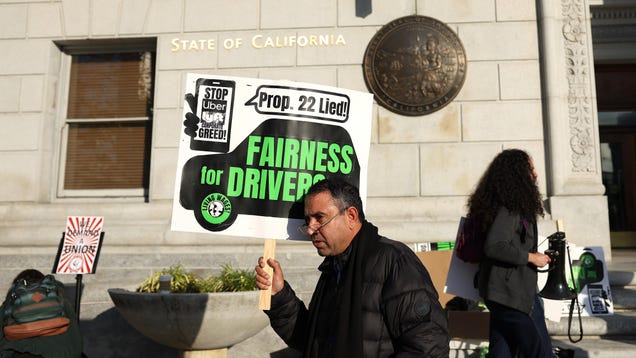
California Supreme Court Upholds Proposition 22, Allowing Uber and Lyft to Classify Drivers as Contractors
The California Supreme Court has unanimously upheld Proposition 22, a ballot measure that grants gig app companies like Uber and Lyft the ability to classify their drivers as contractors rather than employees. This decision comes after Prop 22 was passed in November 2020, with an overwhelming 58.6 percent of voters in favor.
What is Proposition 22?
Proposition 22 is an initiative that allows app-based gig companies to continue classifying their workers as independent contractors. It exempts these companies from providing benefits and protections typically afforded to employees, such as minimum wage, overtime pay, and unemployment insurance.
The Impact of the Decision
The Supreme Court’s decision to uphold Prop 22 has significant implications for the gig economy and the drivers who work for these app-based companies. By classifying drivers as contractors, Uber, Lyft, and other similar companies can avoid the costs associated with treating them as employees. However, this also means that drivers will not receive the same level of benefits and protections.
Supporters of Prop 22 argue that it provides flexibility and independence for drivers, allowing them to work on their own terms. They believe that classifying drivers as contractors enables them to have control over their schedules and work as much or as little as they desire.
On the other hand, critics argue that Prop 22 undermines worker rights and protections. They claim that by classifying drivers as contractors, these companies are able to exploit them by denying them essential benefits and protections. They believe that drivers should be entitled to the same benefits and protections as traditional employees.
The Future of the Gig Economy
The decision to uphold Prop 22 sets a precedent for the gig economy, not only in California but potentially across the United States. It solidifies the classification of gig workers as independent contractors, allowing companies to continue operating with a flexible workforce.
However, the debate surrounding worker classification and rights in the gig economy is far from over. Advocates for worker protections will likely continue to push for legislation that ensures gig workers receive fair treatment and benefits.
Overall, the California Supreme Court’s decision to uphold Proposition 22 has far-reaching implications for the gig economy and the rights of workers. It remains to be seen how this decision will shape the future of the gig economy and the ongoing debate surrounding worker classification.


